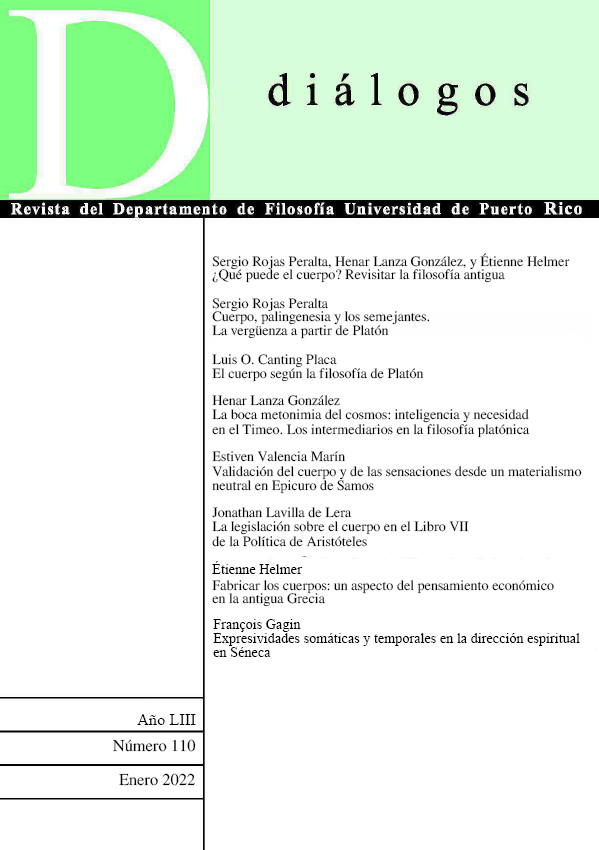Abstract
The economic aspects of the body in ancient Greece have not raised much scholarly interest so far. However, they play a central part, the body being the meeting point of natural, economic and political dynamics. In this article, I will show that Aristotle, making tacit use of his own biological knowledge as well as common and ideological representations of the body, points out how in the oikos two types of bodies are manufactured that are differentiated by their function, appearance, and capacities: the bodies that are mobilized in economic activities and the bodies which are required for political activities.

This work is licensed under a Creative Commons Attribution-NonCommercial 4.0 International License.
Downloads
Download data is not yet available.

